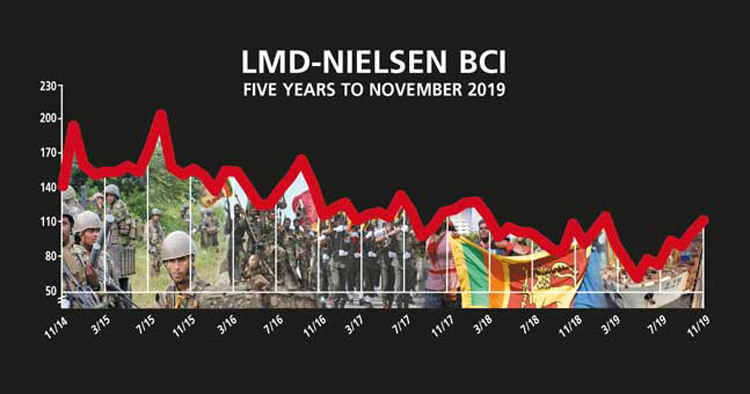December, 4, 2019

Sri Lanka’s trade deficit widened in September with a decline in earnings from exports exceeding the fall in import expenditure, according to the Central Bank of Sri Lanka. “The trade deficit remained significantly low in the first nine months of 2019 over the same period of last year,” it notes.
Meanwhile, the drop in tourist arrivals was contained while workers’ remittances rose (although declining on a cumulative basis) – and in terms of the financial account, foreign investment in the Colombo Stock Exchange (CSE) and government securities market recorded net outflows in September, Central Bank data reveals.
As for the rupee, it remarks: “Despite some depreciation pressure in September, the Sri Lankan Rupee… appreciated against most major currencies during the first nine months of the year.”
Gross official reserves stood at US$ 7.6 billion at end September, which represents 4.6 months of imports. And total foreign assets consisting of gross official reserves and foreign assets of the banking sector amounted to 10.4 billion dollars (corresponding to 6.2 months of imports).
Turning to the latest LMD-Nielsen Business Confidence Index (BCI), which reflects the views of businesspeople in the first week of November (i.e. ahead of the presidential election), sentiment remains on a positive trajectory.

THE INDEX The BCI recorded 111 in November, which is nine basis points higher than in the previous month; this, in fact, is the highest the index has been since February.
Commenting on the survey results, Nielsen’s Director – Consumer Insights Therica Miyanadeniya asserts: “Election fever escalated amid much speculation on who would win… There was much anticipation and expectations for the future of the country. This euphoria is reflected in both the BCI and Consumer Confidence Index (CCI) as these indices have continued to rise.”
Commenting on the completion of the survey only days before the election, she notes that “the general feeling is that the direction of the Sri Lankan economy depends on who would be elected to lead the country – and there’s hope that there will be stability for business to flourish in the future.”
SENSITIVITIES High taxes emerge as the chief concern for businesses in Sri Lanka, followed by the political climate.
One businessperson is of the view that “government departments and organisations are not supporting business. They only make it harder for businesses to operate!”
PROJECTIONS Continuing from the preceding month, pre-poll positivity appears to have buoyed business sentiment. And going by the results of the BCI survey for November, this mirrors the corporate mindset during the last stretch of the presidential race.
The outcome of the presidential election however, is but one marker of governance in Sri Lanka. A nation at the crossroads is in need of new direction.
And of course, the election cycle will recommence in the new year with the prospect of a general election – and how the corporate community views the recent past and immediate future will determine where the index will head in the near term.
Video Story